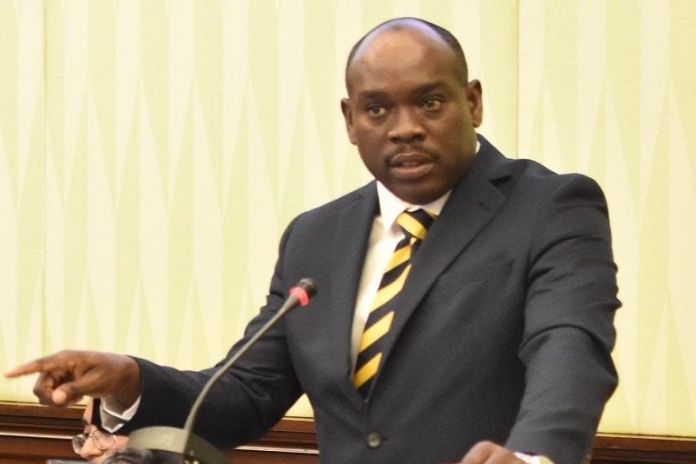By Sharon Austin
BRIDGETOWN, Barbados (BGIS) — Minister in the ministry of finance, Ryan Straughn, reinforced that the government of Barbados “remains committed to improving the business climate,” speaking at the virtual opening of the Draft Customs Bill Consultation, hosted by the Barbados Chamber of Commerce and Industry and the Customs and Excise Department.
Straughn emphasised the importance of the three in-depth meetings with Customs officials and the business community, saying he was looking forward to the feedback on the new legislation.
“The intent of the draft Customs Bill is not solely focused on fines, but a number of reforms we are putting in place relating to the Trusted Trader Programme; and … aimed at improving business facilitation. That is where we want to focus and position the legislation … “I look forward to piloting this in parliament in the very near future, at the end of these consultations,” he stated.
The minister said CARTAC had been engaged for an updated policy position on what would be required to modernise the Customs Department and government immediately set about the task of ensuring it could remedy a lot of the longstanding issues.
“This is a … process of which the Bill is a part. But certainly it is an evolution given that a lot of technical assistance and training has to now be completed within the context of the Customs Department and the administration broadly, but certainly with respect to training amongst the private sector, in order for Barbados to be truly world-class,” he explained.
Straughn noted that with the assistance of the United Nations Conference on Trade and Development (UNCTAD), ASYCUDA World was successfully implemented last year. He added that Cabinet has since approved an extension for technical assistance from UNCTAD.
“Having moved from the paper of ASYCUDA++ to a paperless environment in ASYCUDA World, it is now the intention with respect to the extension of the technical assistance programme, to be able, in part, to digitise the payment systems so that the facilitation element with respect to government as well as the private sector is seamless.
“…Working with the banks, Central Bank and the rest of the financial sector, we have been pushing the importance of digitising the payments across the national system, and Customs is a part of that process, and therefore we anticipate that we should be able to complete that process pretty soon,” he stated.
Straughn expressed the view that in the face of the current global uncertainty with the COVID-19 pandemic, the country needed to continue on its transformation path to take businesses global.
He told his audience: “COVID-19 has created another scenario where we must as a country, through policy, use all of the relevant tools that we do have available to us, to ensure that we first and foremost protect a number of businesses in Barbados… At the end of all of this uncertainty, we must preserve for the benefit of our Barbadian society, as much business locally as possible, in order to ensure that there is an element of social stability that is completely maintained.”





